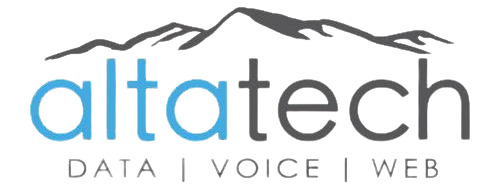The business world has changed a lot, moving towards more flexibility and remote work this shift requires strong remote work infrastructure to support this change. Companies need to know how to use managed IT services for remote work these services are key to keeping teams productive, connected and safe no matter where they are.
A modern home office setup with multiple computer screens displaying network diagrams and IT management software, a cozy workspace with ergonomic furniture, soft ambient lighting, and plants for a fresh atmosphere. Include subtle elements of technology like routers and cables subtly integrated into the decor, symbolizing efficient managed IT services supporting remote work.
Setting up these services needs a careful plan. It’s about matching IT with a company’s goals and what its remote workers need. This includes better IT support for remote teams and top-notch security. The best practices in this section will help businesses make remote work smooth and efficient. Let’s explore these practices and find out how to make a digital workplace work well.
Understanding the Scope of Managed IT Services for Remote Work
Remote work technology is key to keeping things running smoothly and safely. Managed IT services for remote work give businesses the tools they need to work well from anywhere. These services do more than just fix IT problems. They provide full support so everyone can work their best, no matter where they are.
A futuristic workspace with multiple computer screens displaying network connections, digital security icons, and cloud storage visuals, set against a backdrop of a modern home office with sleek furniture and ambient lighting, showcasing remote collaboration tools and virtual IT services in action.
At the heart of managed IT support for remote teams is the use of cloud solutions. These make it easy to get to company data and apps from any internet-connected device. Strong network management keeps connections stable and downtime low. Cybersecurity is also a big deal, as remote work can make data breaches and cyber threats more likely.
By mixing remote work tech with traditional IT management, companies can run smoothly and securely. These virtual IT solutions are more than just tech support. They are a smart move that can change a company’s culture and success in the age of remote work.
Key Considerations When Selecting a Managed IT Service Provider
Choosing the right managed IT service provider is key for businesses to succeed in today’s digital world. It’s not just about the cost. You need to look at the IT expertise, compliance and security, and scalability. These factors ensure your IT services are efficient, reliable, and grow with your business.
Evaluating Provider Expertise and Experience
When picking an IT service provider, it’s important to check their expertise. Look for providers with a proven track record, experience in your industry, and the right skills for your technology needs. Reviewing their past projects and client feedback helps you see if they can handle your IT needs well.
Assessing Security Protocols and Compliance Standards
Security is a top priority in managed IT services. Make sure the provider follows strict security and compliance standards. This protects your business from data breaches and cyber threats. Choose a provider that shows a strong commitment to security and meets your industry’s regulations.
Scalability and Flexibility of IT Services
For businesses in changing markets, scalable IT solutions are essential. The IT service provider should offer solutions that grow with your business. This flexibility supports your growth, whether you’re expanding globally or working remotely.
A dynamic visualization of scalable IT solutions, featuring interconnected servers and cloud systems, surrounded by abstract representations of data flow and connectivity. Emphasize flexibility and adaptability with vibrant colors and modern design elements, illustrating a seamless integration of technology in a remote work environment. Include visual metaphors for growth and expansion, such as upward arrows or blossoming digital networks, set against a futuristic backdrop.
Managed IT Services for Remote Work Solutions
Managed IT services are key for remote work support as companies move to remote work, they need special tech solutions. These solutions meet both work needs and security requirements.
Remote work support has grown beyond just virtual meetings. Now, it includes cloud computing services for easy access to company resources from anywhere. This boosts productivity and flexibility. IT services also provide strong security with VPNs and backup systems to protect data outside the office.
Knowing the full benefits of these services adds great value to remote work setups. These IT services keep work running smoothly and help save costs. Companies wanting to grow their remote work will find these tech solutions essential.
Investing in the right tech for remote work creates a better work space and helps businesses grow. As more companies go remote, they need reliable and growing IT solutions. This makes managed IT services crucial in today’s business world.
Streamlining Communication and Collaboration Tools
Effective communication and teamwork are key in remote work. Managed IT Services help a lot in these areas they make teams work better and faster, no matter where they are.
Integrating Unified Communication Platforms
Unified communications are a must in today’s remote work they mix different communication tools into one platform. This makes it easy for employees to talk, video chat, send messages, and share files in one spot. It makes talking and getting answers faster.
Ensuring Seamless Collaboration Across Teams
Good teamwork is crucial for remote teams to succeed. Strong collaboration tools help team members share ideas and work together easily these tools keep everyone on the same page, just like in an office.
Tools for Project Management and Real-time Updates
Remote project management tools are vital for keeping projects on track. They give updates and dashboards in real-time. This helps managers and teams know where projects stand and when they’re due.
Implementing Robust Security Measures for Remote Teams
Remote work is growing fast, making cybersecurity for remote work more important than ever. As more teams work online, they need strong security to fight off new cyber threats.
Advanced Threat Detection and Response Systems
Using advanced threat detection tools is key to quickly spotting and fixing security issues. These tools analyze threats and act fast, keeping remote teams safe.
Endpoint Security and Data Protection Strategies
Endpoint security strategies protect the devices of remote workers. This includes secure VPNs and keeping software up to date. These steps help keep company data safe from hackers.
Regular Security Training for Remote Employees
Regular security training is also crucial. It teaches employees about the latest in cybersecurity. This training helps them spot and stop security problems, making the whole team safer.
Optimizing IT Support for Remote Employees
Remote work works best with strong IT support. It fixes problems fast and keeps everything running smoothly. Key strategies like 24/7 IT helpdesk, remote monitoring, and efficient IT systems are crucial. They help remote workers stay productive and avoid technical issues.
Establishing a 24/7 Helpdesk and Technical Support
A 24/7 IT helpdesk is essential for remote workers. It’s always there to help with technical problems. This is especially important for teams in different time zones. Having dedicated support specialists helps solve problems quickly and keeps productivity high.
Remote Monitoring and Management Solutions
Remote monitoring keeps an eye on company networks and devices. It finds and fixes problems before they get worse. This approach cuts downtime and lets IT teams focus on important tasks instead of just fixing problems.
Efficient Trouble Ticket System for Rapid Response
A good trouble ticket system is key to IT support. It makes reporting and fixing issues easy. With it, all requests are handled quickly, improving service satisfaction and response times for remote employees.
Fostering a Culture of Continuous Improvement and Adaptation
Continuous improvement in IT is key for managing remote work well. It’s not just about making small tweaks but about being proactive and innovative.
As companies use more managed IT services, they need to be ready for change. They should use new technologies and stay flexible. This way, they can lead in their field, not just follow.
Improvement is a cycle of checking, trying, and getting better. This cycle should be part of the company’s culture. It’s important to see innovation as a series of small steps, each one building on the last.
For IT services, this means checking security often, trying new cloud services and using the latest communication tools.
Creating a culture of constant improvement and adaptation in IT is a promise to always strive for better. It’s about welcoming feedback and seeing every problem as a chance to grow. By doing this, companies can make sure their remote work is ready for the future, keeping them ahead of the competition.





